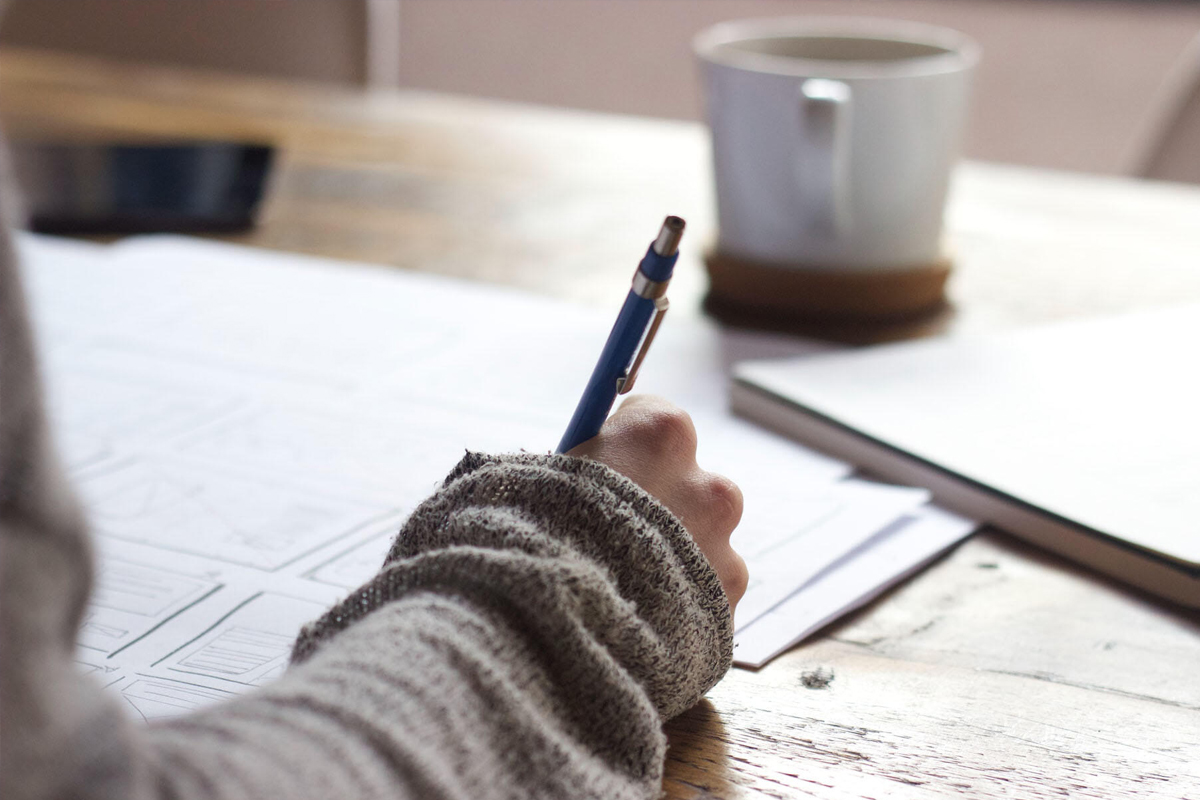Assuming you’ve skimmed through lessons one though four now, it’s time to actually get down to the nitty-gritty of what it takes to write a book.
I can assure you that not everyone has the patience to sit down and create a new world from top to bottom. I’m not expecting you to have a world of wizards and witches by sundown, but you could at least have some ideas down on a piece of paper by the end of the day. Before I even touch the keyboard, I have pages of notes to work off of. If you went to catholic school like me, I’m sure you remember having a marble notebook for every subject right?
Well, run down over to Staples and get one. At least have some papyrus to write on or something to record your notes. I personally like the feeling of writing things down on paper, plus I keep my notes to look back on one day. You’d be surprised to see what was going through your head at specific points in your life.
If you’re the environmentally conscious type, you could always record notes on your phone or laptop. There are plenty of great note taking applications you can use with easy access as well. I personally think that taking notes on a laptop defeats the purpose of the entire process, but to each their own.
The point is, have some sort of easy access to write down ideas at ANY TIME in the day. I can’t even count the times an idea popped into my head while I was driving. The first thing I did was ask Siri to take a note for me. The second I had a chance, I re-recorded those notes into my marble notebook.
The marble notebook idea popped into my head.
On the front of the marble notebook it states: Property of Anthony P. Sciarratta. Reward if returned. This is a trick that I learned from reading Francis Ford Coppola’s Godfather Notebook. He used a similar process when it came from creating a screenplay from Mario Puzo’s novel. Reading The Godfather Notebook definitely put me on the right track when starting the creative process of what it takes to dissect and create a story.
If you’re not an organized person, this may be a hard task for you. Please believe me when I say that even if you’re the most organized person, your notes will get lost because there will be so many of them.
When I say, “taking notes,” I’m not necessarily talking about research. I’m talking about character descriptions, settings, plot points, and any other random ideas that pop into your mind that pertains to your story.
One thing that I like to include in all of my books is music. Think back to when I said Spotify contributed to my book’s publication.
Since most of my work is considered to be what people call a, “period piece,” I personally like to include different kinds of music and pop culture events that pertain to the specific era I’m writing about.
I have a Spotify playlist for every book that I’ve written. In my head, I put scenes in my head that I create going along to the music. This method may not work for everyone, but in a way, I consider it part of my research. When I put a scene in my head to music, it becomes easier to bring to life and write out. I guess you could call it a type of mental note.
To quickly recap, keep all these notes in one safe place. Make sure you put a sticker on it that says return for reward if found with your name on it. Use inspiration when it comes from reading other books, watching other movies, listening to music, or events in your everyday life.
Once you feel as if you have enough notes to work from, it’s time to start writing your book! This is the part that you should not overthink.
Just write.

